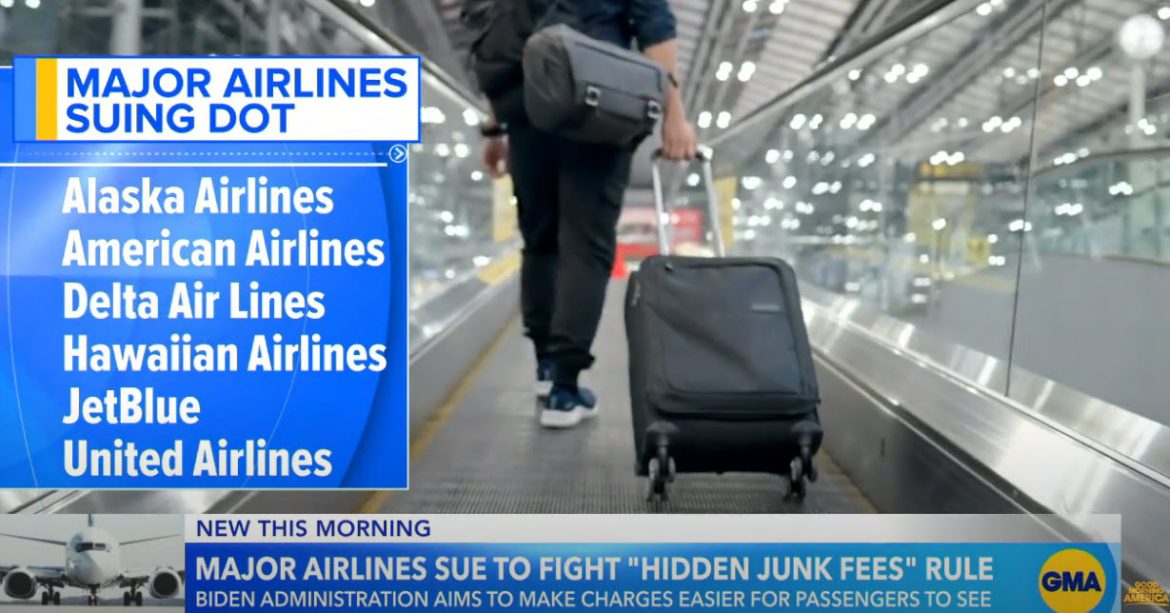A coalition of major airlines, including American Airlines, Delta Air Lines, and United Airlines, has filed a lawsuit against the Biden administration over a new rule mandating the upfront disclosure of airline fees. The lawsuit, filed against the Department of Transportation (DOT), challenges the requirement for airlines and ticket agents to clearly disclose service fees alongside the advertised airfare.
The airlines argue that they already provide comprehensive fee information to consumers and contend that the new rule will cause unnecessary confusion. They assert that the existing disclosure practices are sufficient and that the new regulations will complicate the booking process, potentially leading to misunderstandings about the true cost of air travel.
The contested rule is part of the Biden administration’s broader initiative to eliminate so-called “junk fees” across various industries. These efforts aim to increase transparency and protect consumers from hidden charges that can significantly raise the final cost of services and products. The administration has emphasized that clear, upfront disclosure of all fees is essential for ensuring fair competition and empowering consumers to make informed choices.
In response to the lawsuit, the Department of Transportation defends the new rule as a necessary step to enhance consumer protection and transparency in the airline industry. Transportation Secretary Pete Buttigieg has been a vocal advocate for the policy, arguing that travelers deserve to see the full price of their tickets, including any additional fees, before making a purchase decision.
The lawsuit has garnered mixed reactions from consumer advocacy groups and industry experts. Proponents of the new rule argue that it will lead to greater transparency and help consumers avoid unexpected costs, ultimately fostering a more competitive market. Critics, including the suing airlines, maintain that the rule is redundant and could complicate the booking process without providing significant benefits to consumers.
The outcome of this legal battle will have significant implications for the airline industry and consumer rights. If the airlines succeed in their lawsuit, it could hinder the Biden administration’s efforts to regulate hidden fees across various sectors. Conversely, a ruling in favor of the DOT could set a precedent for increased regulatory oversight aimed at protecting consumers from deceptive pricing practices.
As the case progresses, it will be closely watched by stakeholders on both sides of the issue, highlighting the ongoing tension between regulatory measures and industry practices. The lawsuit underscores the broader debate over the role of government in enforcing transparency and protecting consumer interests in the marketplace.



